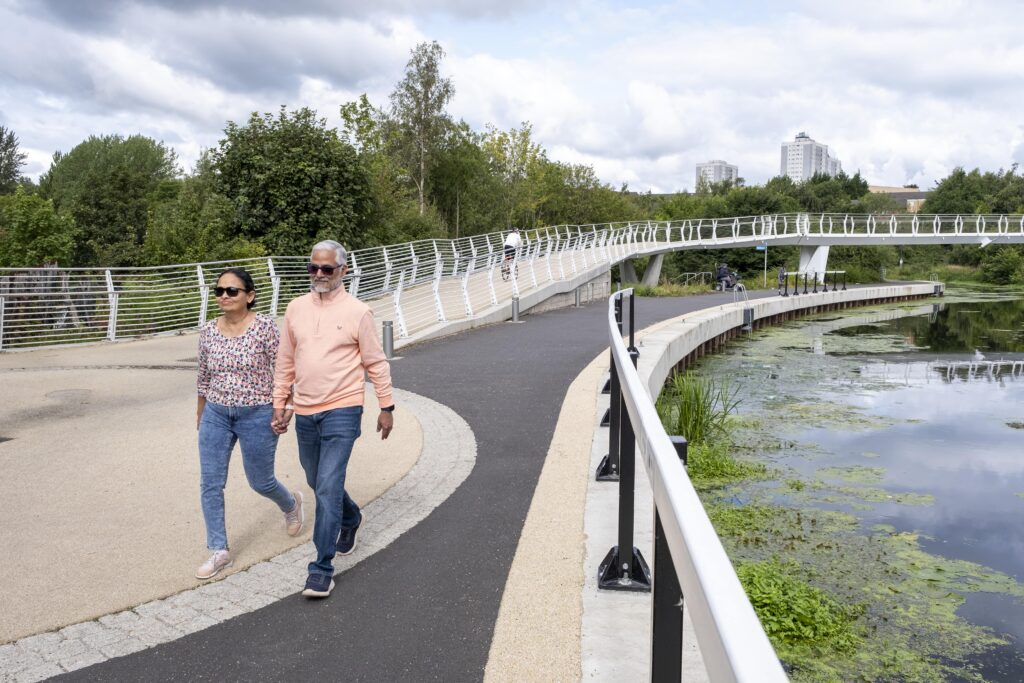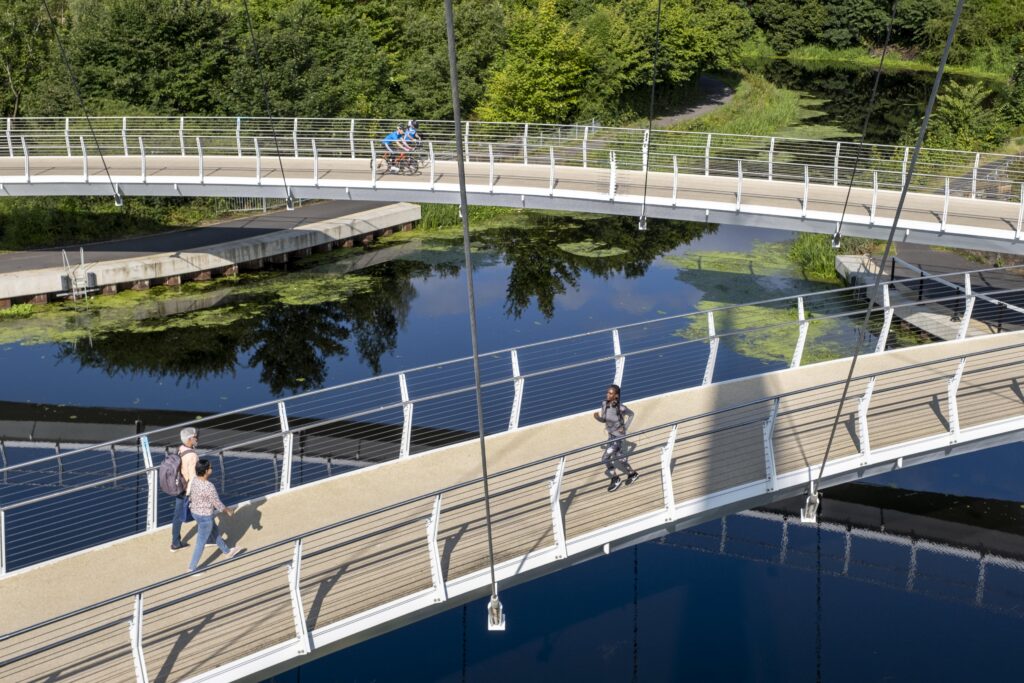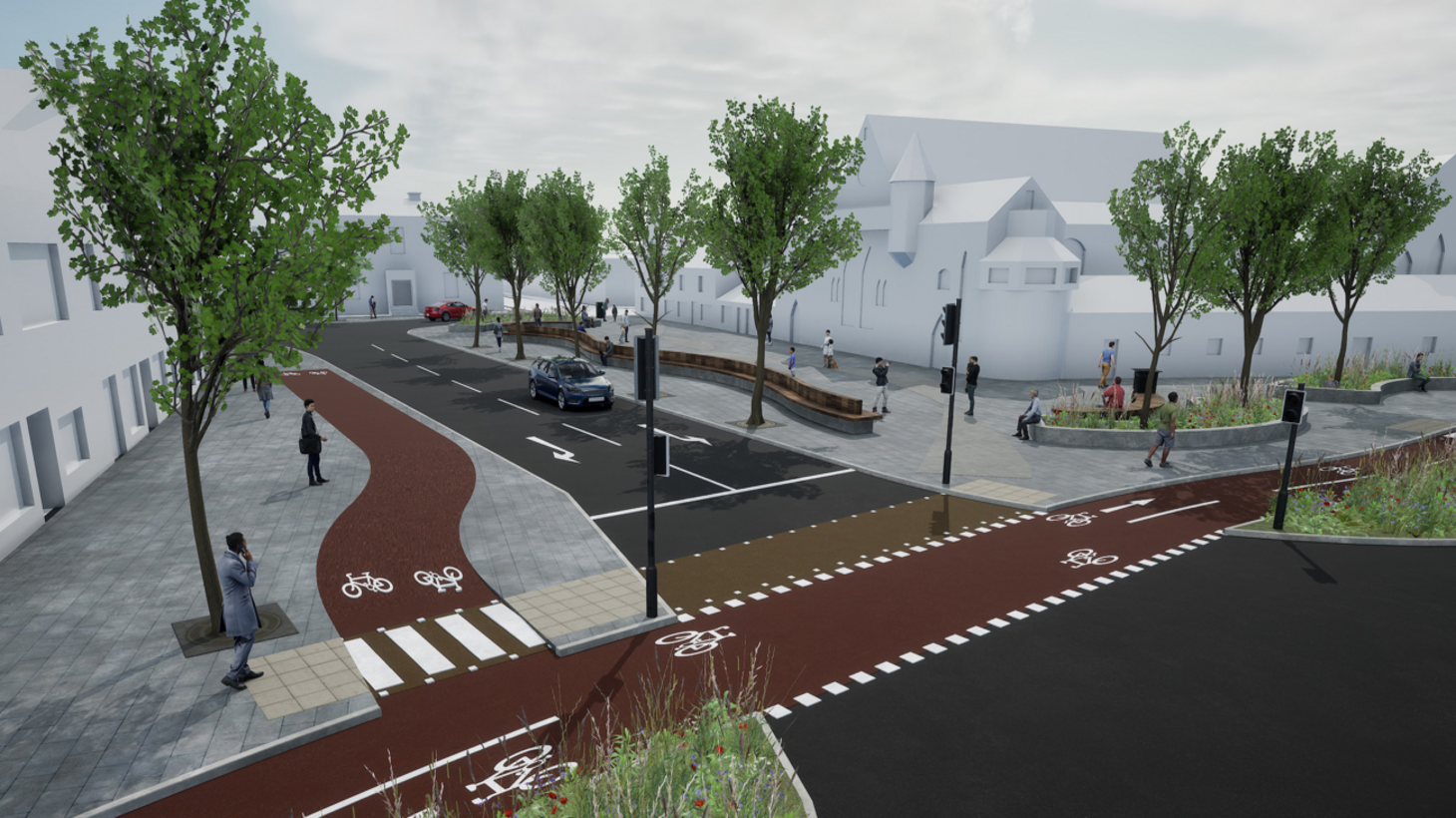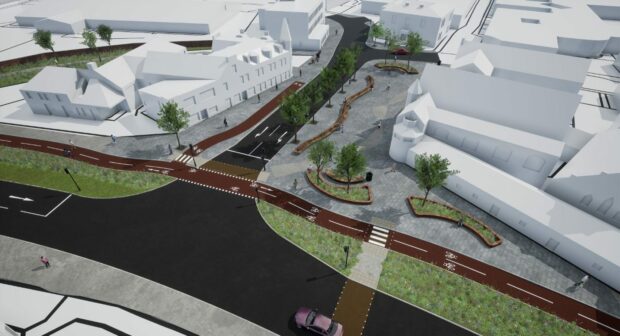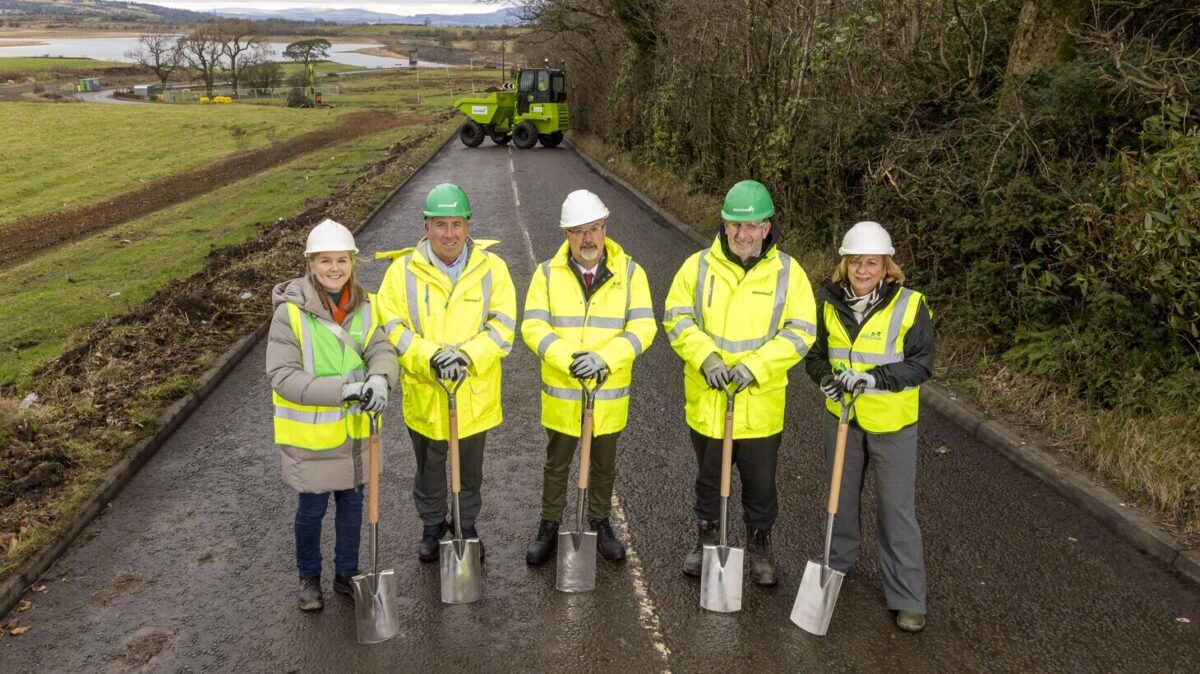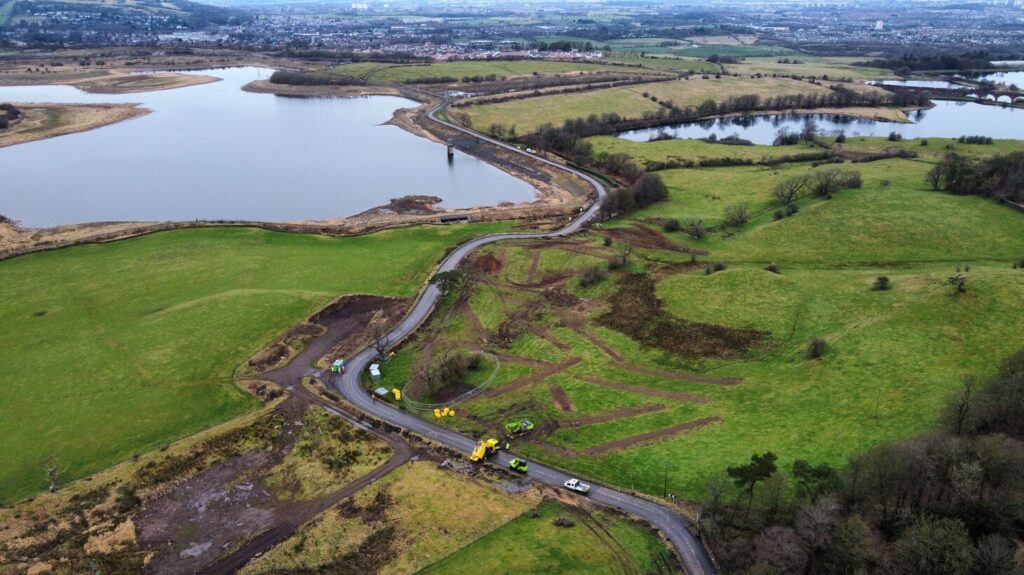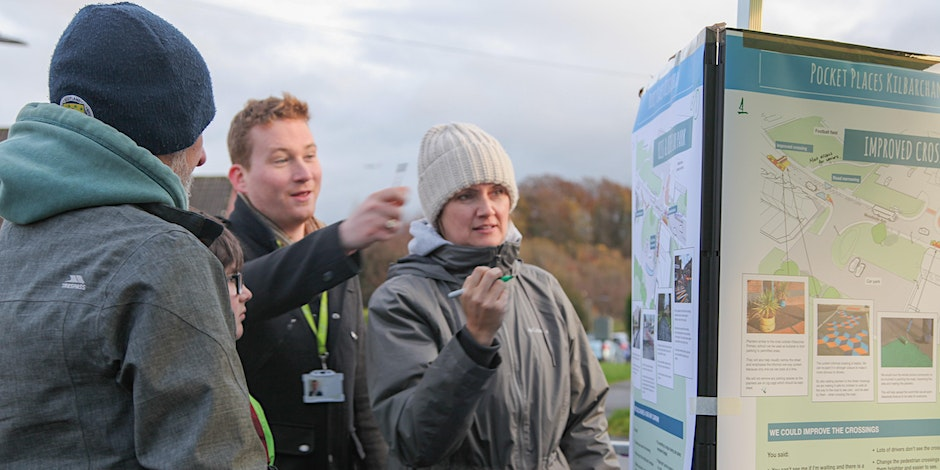People are being encouraged to check out Greenock’s new-look West Blackhall Street following a £6 million project to improve walking, wheeling and cycling.
The street fully reopened recently following a massive modernisation project to make the town’s traditional high street more attractive to residents, shoppers, visitors, and new and existing businesses.
The project was led by Inverclyde Council and delivered through Transport Scotland via Sustrans’ Places for Everyone programme and Strathclyde Partnership for Transport (SPT).
The aim of the redevelopment was to create a vibrant area which is accessible for all with additional space for pedestrians and cyclists and new public realm areas with extra seating and trees to enhance the environment, whilst maintaining vehicle access.
Work was carried out in two phases, initially starting in January 2024 and was completed last month.
Locally led solutions

Plans for West Blackhall Street were originally developed following consultations with the public, residents, traders and partners.
The project supports the aims and objectives of the Greenock Town Centre masterplan to promote West Blackhall Street as a safe, accessible and attractive street in which to live, shop and spend time in, with a focus on supporting future uses such as café culture and the night-time economy.
West Blackhall Street has also been opened up with existing roads layouts replaced with a single one-way system straight through from Westburn Street to Grey Place to simplify access for cars and parking down one side of the street only.
In addition to improving the look and accessibility of West Blackhall Street, the project is also designed to ‘future proof’ the area so that it will be compatible with more sustainable forms of transport and zero-carbon targets with a shift in focus towards pedestrian priority.
New and improved network
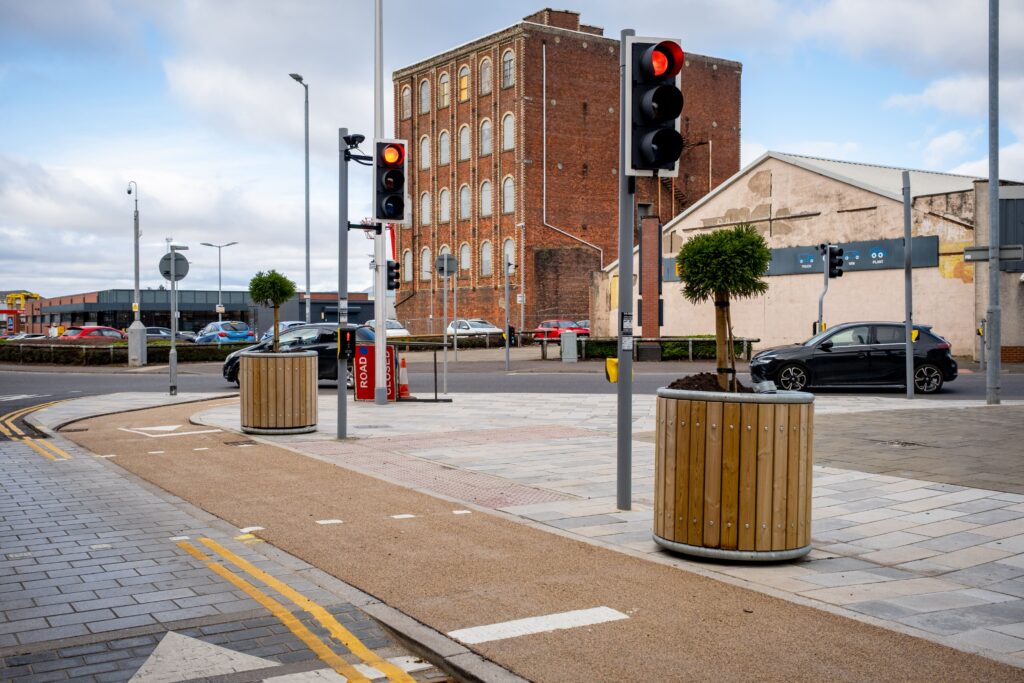
To compliment these works, a £305,000 project to improve the National Cycle Network Route 75, which links West Blackhall Street to Greenock Esplanade, and upgrade the Patrick Street junction is nearing completion.
It is being funded by the Scottish Government and delivered in partnership by Inverclyde Council and Sustrans Scotland’s Network Development programme.
The upgraded junctions at Patrick Street and Campbell Street, as well as improvements to 1.8km of the existing traffic-free Esplanade, will enable people to walk, wheel and cycle safely and easily between the newly revamped high street and the waterfront.
Delivering through partnership

A large portion of the funding for the modernisation came from Sustrans Scotland through their ‘Places for Everyone’ scheme, which is an active travel infrastructure programme backed by Transport Scotland and administered by Sustrans.
Simon Strain, head of programme, Places for Everyone, at Sustrans, said:
“Making places safer and more accessible to reach and move around actively is a win-win for our communities, and we’re delighted to see these changes on West Blackhall Street which give the people of Greenock more choice for their everyday journeys.”
“As well as benefitting people’s health and wellbeing, the revitalisation of West Blackhall Street will offer a huge boost to local businesses, who can expect greater footfall as the street becomes a more attractive destination for locals and visitors alike.”
Councillor Jim Clocherty, Inverclyde Council’s vice-convener of environment and regeneration and chair of the Greenock Town Centre Regeneration Forum, said:
“It was widely acknowledged that West Blackhall Street had seen better days and the council, thanks to support from Sustrans and SPT, stepped up to try and breathe new life into Greenock’s traditional high street.”
“I’d like to thank residents, businesses, and shoppers of West Blackhall Street and surrounding areas for their patience and understanding while this important modernisation project was carried out.”
SPT provided funding towards works including upgrades to traffic lights and pavements at the Grey Place side of West Blackhall Street and to support other elements of the redevelopment.
SPT Chair of operations, Inverclyde Councillor David Wilson, said:
“This is exactly the sort of project which can make such a difference to Inverclyde, improving the area to become a become a much more pleasant place to visit and support the variety of local business available.


